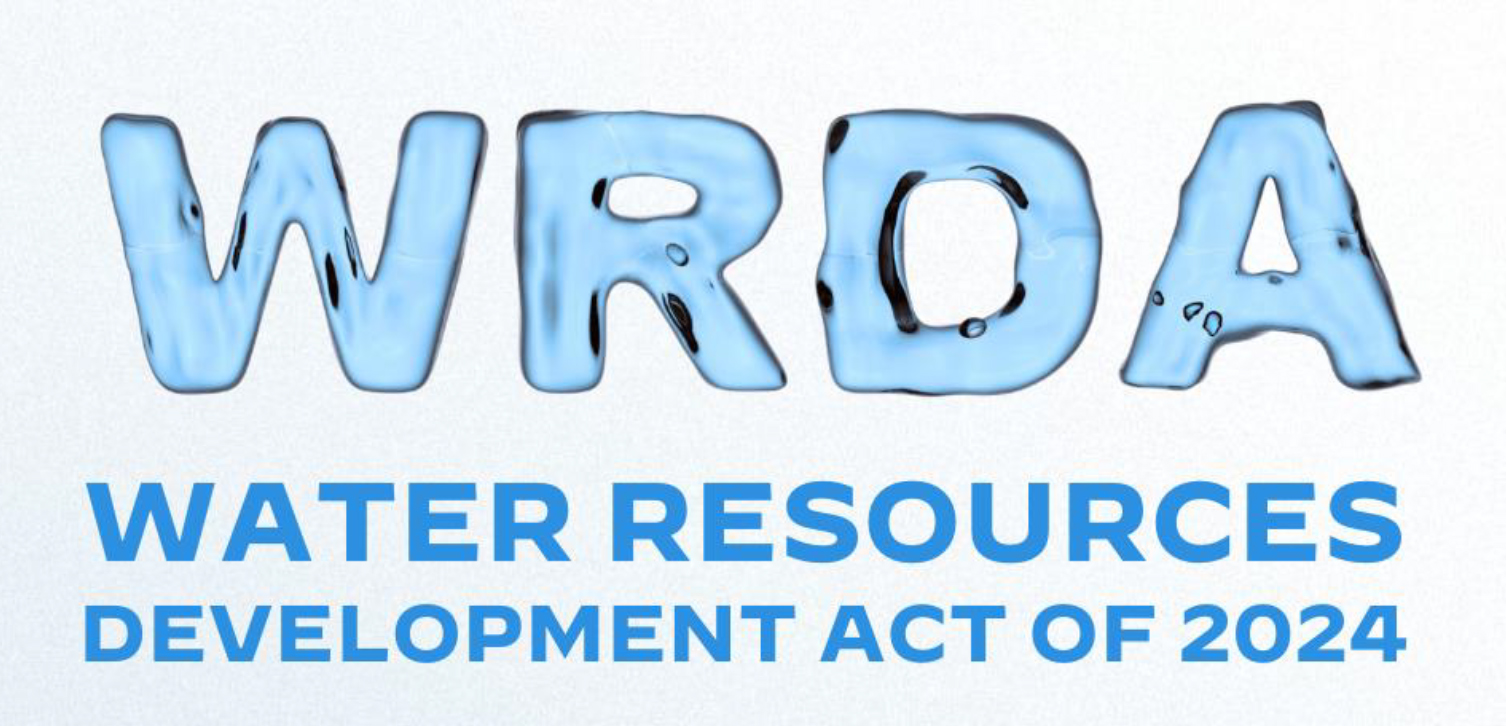Christmas came early for the inland waterways industry with members of the House Committee on Transportation and Infrastructure announcing they have finalized the wording for this year’s Water Resources Development Act (WRDA), thus allowing a vote to proceed before the end of the year. Committee members Reps. Sam Graves, Rick Larsen, Tom Carper and Shelley Moore Capito made the announcement December 3 on the committee’s website.
WRDA is biennial legislation that authorizes the U.S. Army Corps of Engineers (Corps) Civil Works Program to carry out projects to improve the nation’s ports and harbors, inland waterway navigation, flood and storm protection and other aspects of the nation’s water resources infrastructure.
The final version of WRDA follows negotiations over recent months to reconcile House- and Senate-passed versions of the legislation. This is the sixth consecutive Congress that has considered a WRDA bill since 2014.
Among the most prominent Christmas tree ornaments for the industry is section 1126 of the bill, which permanently adjusts the cost-share for construction and major rehabilitation projects on the inland waterways to 75 percent from the general revenues and 25 percent from the Inland Waterways Trust Fund (IWTF). That’s an increase from the previous 65/35 split and a change that industry had long advocated for.
“This cost-share change allows for an estimated $1.4 billion of additional dollars over a 10-year period to be available for Energy & Water Development appropriations that fund the Corps of Engineers,” said Deb Calhoun, senior vice president of Waterways Council Inc. “Specifically, with annual IWTF revenues of $115 million, a 75/25 cost-share allows for $460 million in appropriations, an increase of $131 million above the 65%/35% formula. This is a big win.”
There were several other noteworthy provisions included in the final WRDA 2024.
Section 1118 adds new considerations for awarding contracts in the Inland Waterways Regional Dredge Pilot Program, improving navigation reliability on the inland waterways that are accessible year-round, increasing freight capacity on the inland waterways and having the potential to enhance the availability of containerized cargo on the inland waterways.
Section 1149 allows the Corps to perform remote operations of locks only after the Secretary of the Army provides written notice that the remote operations do not affect the operation and maintenance of navigation or hydroelectric power-generating facilities, will address cyber and physical security threats, are necessary to increase availability and access, and were developed under a public process that includes engagement with personnel and stakeholders who may be impacted by the activities.
Section 1370 directs the Corps to use all relevant authorities to expeditiously provide technical assistance, including engineering and design assistance, and cost estimation assistance to requesting federal entities to address the impacts to navigation along the Tennessee River at Wilson Lock and Dam in Florence, Ala.
Section 1401 authorizes the GIWW Brazoria and Matagorda Counties project for $322,761,000. The bill includes provisions to address concerns raised over the past several years by state departments of transportation by redistributing unobligated balances under the Transportation Infrastructure Finance and Innovation Act (TIFIA) program to the states through the existing Surface Transportation Block Grant (STBG) program.
“WRDA regularly delivers critical water resources infrastructure improvements for communities across America,” said Graves, who serves as the Transportation and Infrastructure Committee chairman. “This bill will lead to improved ports, levees, navigation channels, flood protection and more. “WRDA also makes policy and programmatic reforms to streamline Corps processes, reduce cumbersome red tape and get projects done faster. Furthermore, this agreement includes additional reforms advanced by our committee during this Congress that will improve the utilization of public building office space, reduce the amount of taxpayer dollars wasted on empty federal buildings and get federal workers back in the office.”
Larsen, the committee’s ranking member, also praised the bill.
“The T&I Committee is focused on investing in the nation’s infrastructure while creating good-paying jobs for hardworking women and men, and these bills are no exception,” Larsen said. “The Water Resources Development Act of 2024 continues a proud bipartisan, bicameral tradition to create jobs and improve the efficiency and effectiveness of the nation’s ports, harbors and inland waterways. By reauthorizing the Economic Development Administration and several regional economic development commissions, this legislation supports locally-driven economic growth in regions across the country.”
Carper, Environment and Public Works Committee chairman, said the timely passage of WRDA every two years is essential to ensuring the Corps of Engineers can continue to address the nation’s diverse water resource needs.
“This legislation will advance projects that invest in our waterways and improve our quality of life,” Carper said. “Altogether, this package will drive our nation’s job growth, invest in American water infrastructure and supply chains and protect our communities in the face of extreme weather. I’m deeply grateful to my colleagues on both sides of the aisle in the House and Senate for their hard work.”
Moore Capito, ranking member of the Environment and Public Works Committee, said the bill is the result of bipartisan cooperation and members’ shared desire to address the water resource challenges facing the nation.
“It provides the tools that the U.S. Army Corps of Engineers needs to further enable their work across the country and supports vital projects in West Virginia’s communities,” she said.
Additionally, she said the bill unlocks “a significant backlog of transportation funding” for state departments of transportation.
“This bill will move our country forward by bolstering our infrastructure and strengthening our economy,” Moore Capito said. “I’m proud of the agreement that we reached with our House colleagues, and I look forward to voting for this bill in the following weeks.”




